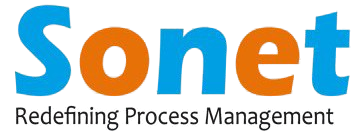IBM-Pearson Schools Automation

Case Study: Streamlining Distance Education Management at Jaipur National University with SODEL Automation
Overview
The School of Distance Education and Learning (SODEL) at Jaipur National University was established in the academic year 2008-2009 to cater to the growing demand for quality distance education. The initiative gained momentum when, in September 2009, SODEL received formal approval from the Distance Education Council (DEC) and the Joint Committee of AICTE-UGC-DEC to offer various undergraduate and postgraduate programs through distance learning.
Challenges Faced
Despite the promising start, SODEL encountered several operational challenges that threatened to undermine its effectiveness and efficiency:
- Study Centre Management:
Coordinating with multiple study centers across various locations became increasingly complex, leading to inefficiencies and communication gaps.
- Fee Collection Issues:
The process of collecting fees from students, particularly from distant study centers, was fraught with delays and lacked transparency, complicating financial management.
- Examination Management:
Conducting examinations and managing student enrollment across different study centers posed significant logistical challenges, leading to delays and errors.
- Historical Data Migration:
The need to migrate previous years’ examination data and generate accurate marksheets for students was a daunting task that required a robust and reliable system.
Solution Provided
To address these challenges, an advanced automation solution was implemented, focusing on both study centers and the university’s central administration.
- For Study Centers:
- Study Centre Login:
A dedicated login portal was provided to each study center, enabling them to enroll students seamlessly into the university system.
- Fee Collection System:
The solution included an online/offline payment gateway that allowed for the smooth collection of registration fees. This ensured that tuition and examination fees were collected program-wise and directly deposited into the university’s accounts, enhancing financial transparency.
- Examination Enrollment:
The study centers could now enroll students for examinations through an online portal, simplifying the process and reducing manual errors.
- Bulk Admit Card Generation:
The system allowed for the bulk generation of admit cards, which were distributed efficiently to students, ensuring they were well-prepared for their exams.
- Marksheet Generation:
Mark sheets were generated centrally for each study center and delivered to students, ensuring consistency and accuracy across the board.
- For the University:
- Centralized Control:
The system facilitated better control over the study centers by ensuring proper channelization of processes. This centralized approach allowed for easier management and monitoring of operations.
- Transparency in Fee Collection:
With the automated fee collection system, the university achieved greater transparency in financial transactions, reducing discrepancies and enhancing trust among stakeholders.
- Simplified Student Data Access:
The university administration could now access student data with just a click, streamlining administrative tasks and improving decision-making processes.
- Efficient Degree Distribution:
The automation system simplified the distribution of degrees to students, reducing delays and ensuring that graduates received their certifications in a timely manner.
- Digital Marksheet Generation:
The system enabled the digital generation of marksheets, incorporating historical data migration. This not only ensured the accuracy of records but also made them easily accessible for future reference.
- Comprehensive Examination Management:
The solution provided end-to-end management of the entire examination process, from course registration to marksheet generation, ensuring a smooth and error-free operation.
Implementation Process
- Assessment and Planning:
A thorough assessment was conducted to understand the specific challenges faced by SODEL and its study centers. Based on this assessment, a detailed plan was formulated to address these issues through targeted automation.
- Development and Customization:
The automation solution was developed with a focus on customization to meet the unique needs of SODEL. This included the creation of dedicated portals for study centers and the university, as well as the integration of payment gateways and data migration tools.
- Deployment and Training:
The solution was deployed in phases to ensure minimal disruption to ongoing operations. Comprehensive training was provided to both study center staff and university administrators to ensure they could effectively use the new system.
- Ongoing Support and Optimization:
Post-deployment, continuous support and system optimization services were offered to address any issues that arose and to ensure that the system remained aligned with the evolving needs of SODEL.
Benefits Realized
- Improved Coordination and Control:
The automation solution significantly improved coordination between the university and its study centers, resulting in more streamlined operations and better control over administrative processes.
- Enhanced Financial Transparency:
The implementation of an automated fee collection system brought greater transparency and accuracy to financial transactions, reducing the risk of errors and discrepancies.
- Streamlined Examination Process:
The end-to-end examination management system ensured that all aspects of the examination process, from student enrollment to marksheet generation, were handled efficiently and accurately.
- Simplified Data Management:
The automation of student data access and management allowed the university to maintain up-to-date records, facilitating easier retrieval and better decision-making.
- Efficient Degree and Marksheet Distribution:
The automated system for degree and marksheet generation and distribution ensured that students received their credentials promptly, enhancing their satisfaction and trust in the institution.
Key Outcomes
- Operational Efficiency:
The automation solution significantly reduced the administrative burden on both the university and study centers, allowing them to focus more on delivering quality education. - Transparency and Accountability:
The system’s transparent processes and accurate data management improved accountability at all levels of the organization, fostering a culture of trust and reliability. - Scalability for Future Growth:
The solution’s scalable design ensured that SODEL could easily expand its operations, accommodating more students and programs without compromising on quality or efficiency.
Conclusion
The successful automation of SODEL at Jaipur National University exemplifies the power of tailored technology solutions in transforming educational management. By addressing critical challenges in study center coordination, fee collection, and examination management, Sonet Microsystems has enabled SODEL to enhance its operational efficiency and provide a superior educational experience to its students. This project not only supports the university’s vision of offering accessible and quality distance education but also sets a benchmark for other institutions looking to modernize their administrative processes through automation.



